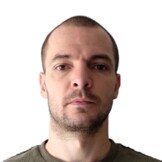Sjogren's syndrome and treatment: medications and lifestyle changes
Treatment is determined after an initial assessment of SjS and according to the presenting difficulties. Lifestyle and habit changes and a non-pharmacological approach are important.
A complete cure of the disease is not possible at this time. The focus is on relieving the inflammatory process and easing the course and symptoms.
It is also divided into treatment according to glandular and extraglandular complaints as well as pharmacotherapy.
Treatment and regimen measures for glandular manifestations:
- eye problems
- treatment of dry keratoconjunctivitis
- dry eye - tear film, drops, gels, eye lubricants, eye moisturizing, which is protective and cleansing
- avoiding unsuitable environments - dry, air-conditioned, windy, smoky, cigarette smoke
- use of goggles with UV filter
- contact lenses
- artificial tears
- with reduced salivary secretion - xerostomia
- meticulous oral hygiene, mouth rinsing and tooth brushing
- prevention of inflammation by various oral means
- restriction of sugars
- chewing sugarless gum - promotes saliva production
- moisturizing oral gel
- sufficient dietary intake
- artificial saliva
- dry nose and airways
- prevention of inflammation
- sufficient vitamins
- nasal sprays - the type recommended by a specialist
- environmental humidification
- dry skin
- creams and body lotions
- massages
- sufficient hygiene
- dry vagina
- vaginal lubricants as prevention of painful intercourse - dyspareunia
- prevention of inflammatory complications
Drinking enough water, tea, especially green tea, and supplements such as vitamins, minerals, and omega essential acids are important. It is necessary to avoid stress and excessive mental engagement.
Adequate rest, relaxation and sleep, appropriate physical activity and an overall active and positive approach to life.
Plus, medication therapy is used to relieve the inflammatory rheumatic process, pain and associated discomforts that result from the specific injury.
Examples are non-steroidal anti-inflammatory drugs, corticosteroids, analgesics, immunosuppression, antimalarials (not for the infectious agent but for the mechanism of action), antibiotics for gland inflammation.
Plus there is a group of drugs referred to as disease modifying antirheumatic drugs (DMARDs) and biological therapy.
The need for treatment of psychological disorders such as depression or anxiety, psychohygiene and psychological support of loved ones are all very important.
You have to accept the disease and learn to live with it.










